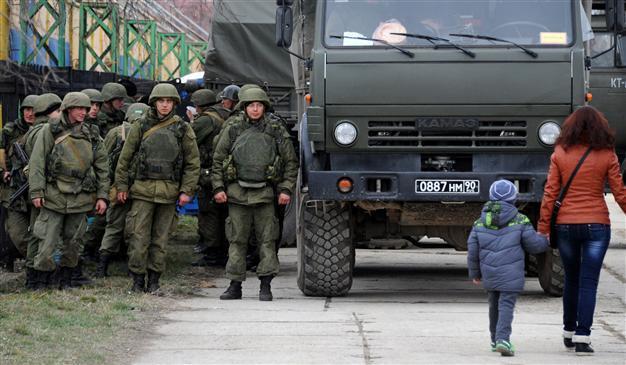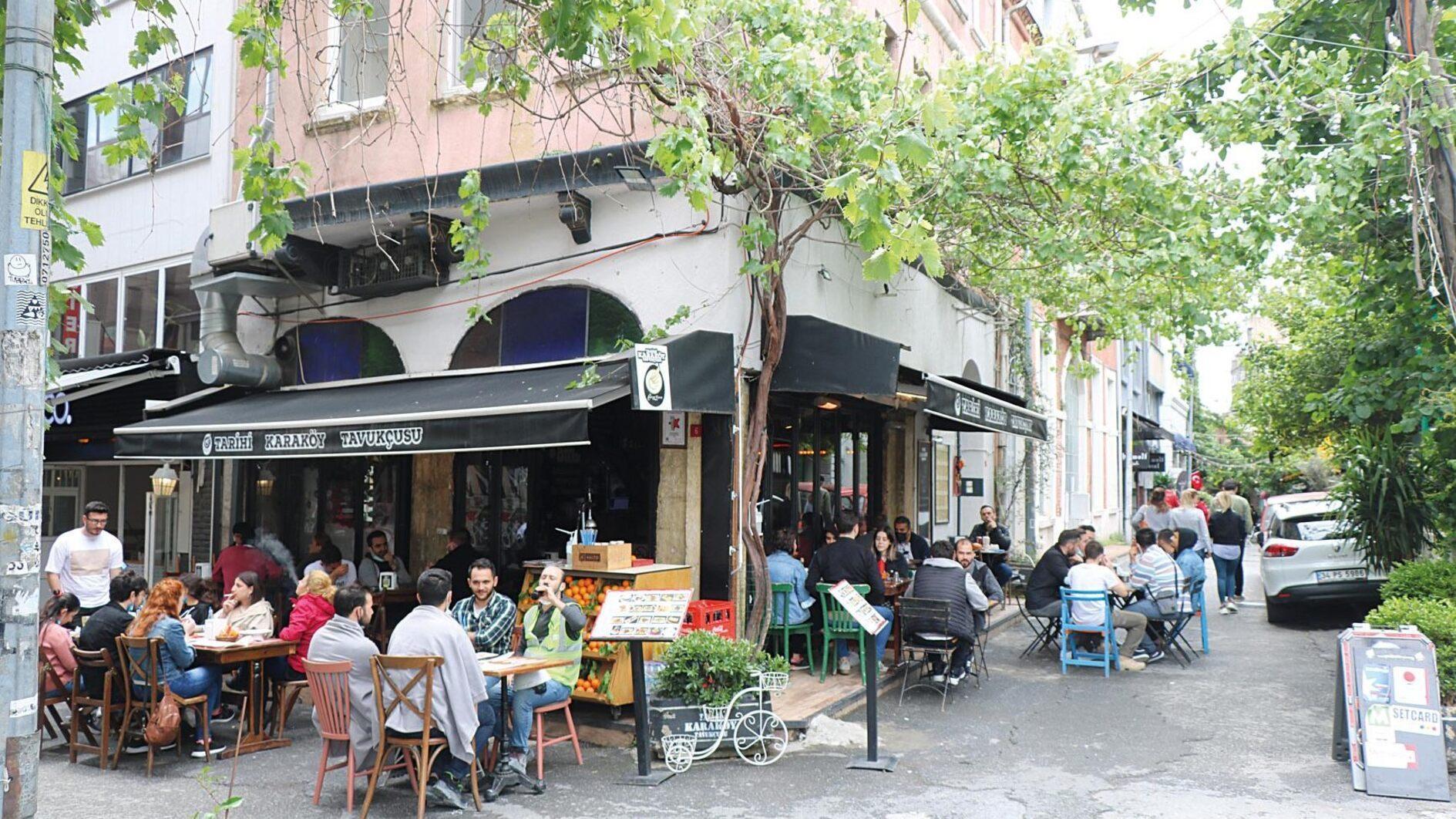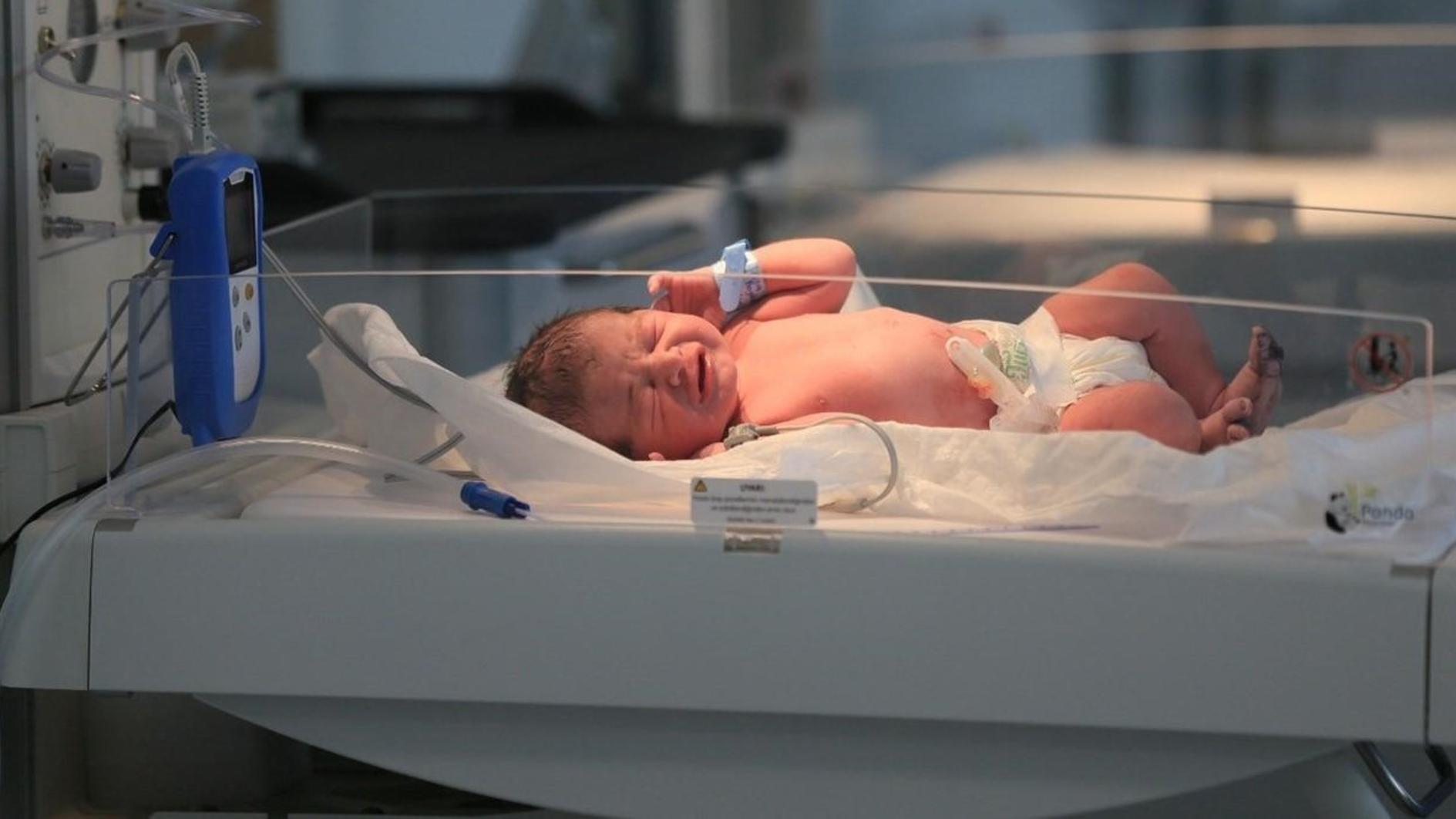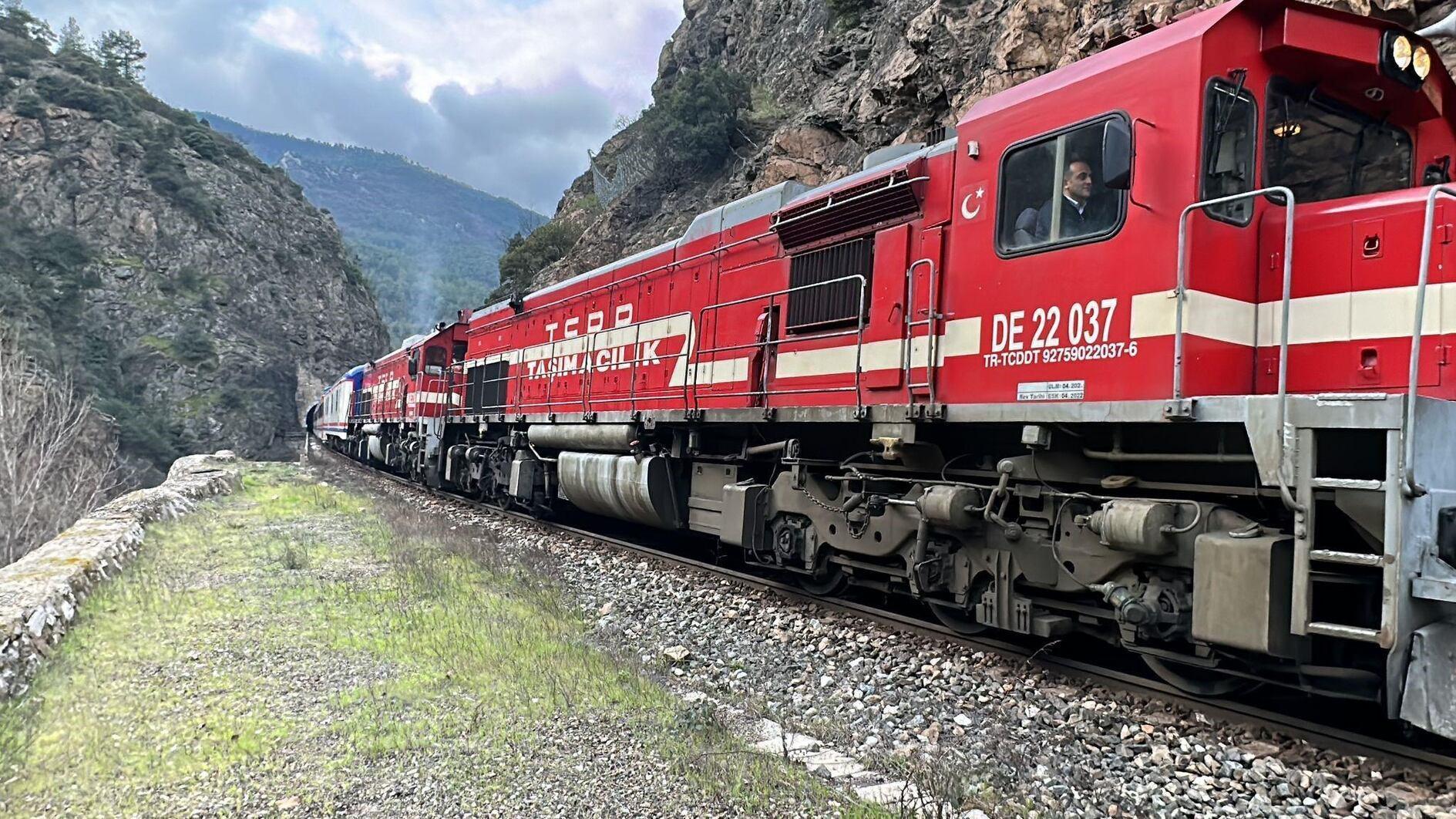Russia gives Ukrainian forces in Crimea ultimatum to surrender: Interfax
KERCH – The Associated Press

Military personnel stand near a Russian-made Kamaz truck in the eastern Crimea'a port city of Feodosiya on March 2, 2014. AFP Photo
Russia's Black Sea Fleet has told Ukrainian forces in Crimea to surrender by 5 a.m. on March 4 or face a military assault, the Interfax news agency quoted a source in the Ukrainian Defence Ministry as saying, in a dramatic escalation of tension. The ultimatum, Interfax said, was issued by Alexander Vitko, the fleet's commander.The ministry did not immediately confirm the report and there was no immediate comment by the Black Sea Fleet, which has a base in Crimea, where Russian forces are in control.
"If they do not surrender before 5 a.m. tomorrow, a real assault will be started against units and divisions of the armed forces across Crimea," the agency quoted the ministry source as saying.
Earlier on March 3, pro-Russian troops controlled a ferry terminal on the easternmost tip of Ukraine's Crimea region close to Russia, intensifying fears that Moscow will send even more troops into the strategic region.
The seizure of the terminal in the Ukrainian city of Kerch about 20 kilometers by boat to Russia came as the U.S. and European governments try to figure out ways to halt and reverse the Russian incursion.
Russia has taken effective control of the Crimean peninsula without firing a shot. Now, the fears in the Ukrainian capital and beyond are that that Russia might seek to expand its control by seizing other parts of eastern Ukraine.
Senior Obama administration officials said the U.S. now believes that Russia has complete operational control of Crimea, a pro-Russian area of the country, and has more than 6,000 troops in the region.
Tension between Ukraine and Moscow rose sharply after Ukraine's pro-Russian President Viktor Yanukovych was pushed out by a protest movement among people who wanted closer ties with the European Union. Yanukovych fled to Russia after more than 80 demonstrators were killed near Kiev's central square. Since then, troops that Ukraine says are Russian soldiers have moved into Crimea, patrolling airport, smashing equipment at an airbase and besieging Ukrainian military installations.
Outrage over Russia's military moves mounted in world capitals, with U.S. Secretary of State John Kerry calling on President Vladimir Putin to pull back from "an incredible act of aggression." Kerry is to travel to Ukraine on March 4.
Britain's Hague meets with Yatsenyuk
Meanwhile, Britain's Foreign Secretary William Hague met with Prime Minister Arseniy Yatsenyuk and laid a bouquet of flowers on Kiev's Independence Square where the slain demonstrators are being commemorated. Hague said it was urgent to get Russia and Ukraine "in direct communication with each other."
Hague said on the BBC that Moscow would face "significant costs" for taking control of Crimea.
"If Russia continues on this course we have to be clear this is not an acceptable way to conduct international relations. That is something that Russia has to recognize ... There will certainly be significant costs," Hague said. "There are things that we can do about it and must do about it."
He suggested economic sanctions were possible. "The world cannot just allow this to happen," he said.
Putin has defied calls from the West to pull back his troops, insisting that Russia has a right to protect its interests and those of Russian-speakers in Crimea and elsewhere in Ukraine.
While much of western Ukraine wants closer ties with the 28-nation European Union, its eastern and southern regions like Crimea look to Russia for support.
Faced with the Russian threat, Ukraine's new government has moved to consolidate its authority, naming new regional governors in the pro-Russia east, enlisting the support of the country's wealthy businessmen and dismissing the head of the country's navy after he declared allegiance to the pro-Russian government in Crimea.
Emergency meeting in Brussels
NATO held an emergency meeting in Brussels and the U.S., France and Britain debated the possibility of boycotting the next Group of Eight economic summit, to be held in June in Sochi, the host of Russia's successful Winter Olympics.
On March 3 evening, the White House issued a joint statement on behalf of the Group of Seven saying they are suspending participation in the planning for the upcoming summit because Russia's advances in the Ukraine violate the "principles and values" on which the G-7 and G-8 operate.
Russia has long wanted to reclaim the lush Crimean Peninsula, part of its territory until 1954. Russia's Black Sea Fleet pays Ukraine millions annually to be stationed at the Crimean port of Sevastopol and nearly 60 percent of Crimea's residents identify themselves as Russian.
















